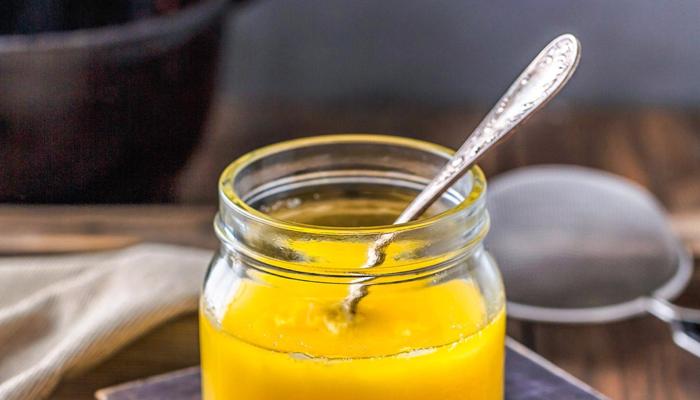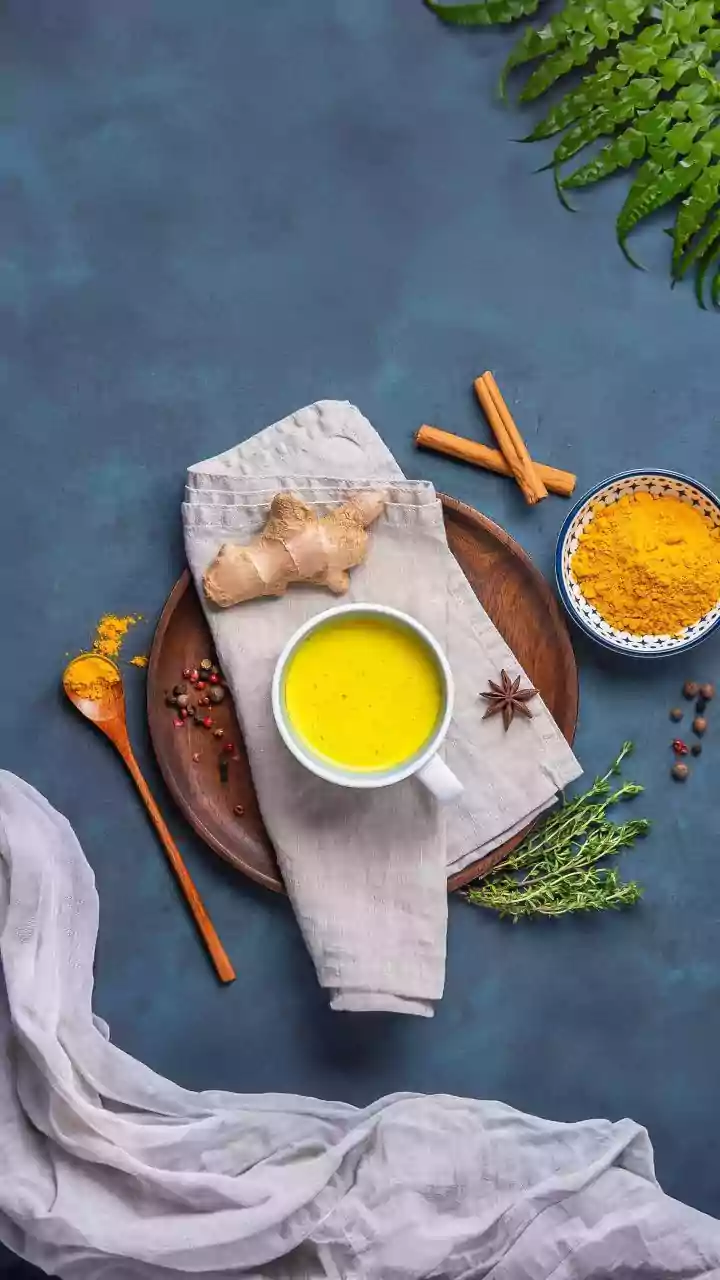Discover the Magic of Ghee: Enhance Flavor, Tradition, and Health Benefits. Dive into the rich world of ghee's culinary wonders
For generations, ghee has held a place of honour in Indian kitchens. This
golden elixir, a type of clarified butter, is more than just a cooking medium; it's deeply ingrained in our culture and traditions.
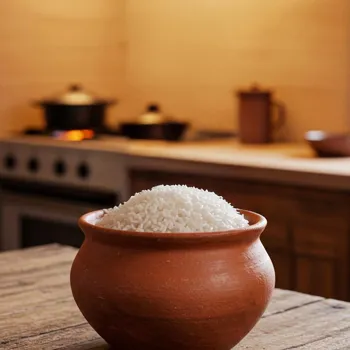
From being offered in sacred rituals to being a staple in everyday meals, ghee is celebrated for its rich flavour and believed health benefits. But in this day and age of modern cooking oils, why should you consider embracing the magic of ghee?
Let's explore seven compelling reasons to bring this traditional ingredient back into your kitchen.
Ghee is considered sattvic in Ayurveda, promoting positivity and balance. Compared to other cooking oils, ghee has a long shelf life and holds its flavour well.
It is traditionally used in Indian sweets so it helps to give a rich flavour.
A Flavourful Tradition: The Rich Taste of Ghee
Ghee possesses a unique, nutty flavour that elevates the taste of any dish. Unlike neutral oils, ghee imparts a distinct richness and aroma that enhances both sweet and savory preparations.
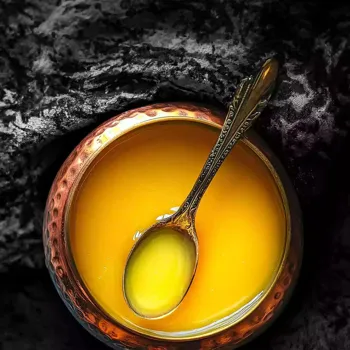
Think of the comforting aroma of ghee-roasted dals, the melt-in-your-mouth goodness of ghee-laden sweets, or the subtle depth it adds to vegetable curries. This flavourful profile is born from the process of simmering butter, which gently toasts the milk solids and releases a captivating fragrance.
From simple everyday meals to festive feasts, a spoonful of ghee can transform ordinary dishes into culinary delights. It is used to make the desserts taste delicious.
It is also used on the dry rotis to make it soft.
Good for Your Health: A Nutritional Powerhouse
Ghee, often perceived as just a fat, is actually packed with beneficial nutrients. It's a rich source of fat-soluble vitamins A, D, E, and K, which are crucial for various bodily functions.
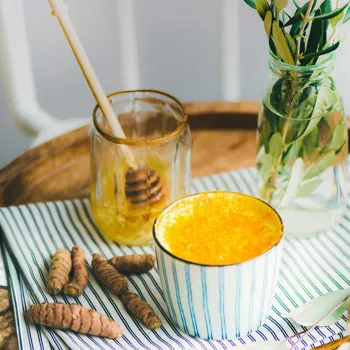
Vitamin A supports healthy vision and immune function, while vitamin D aids in calcium absorption and bone health. Vitamin E acts as an antioxidant, protecting cells from damage, and vitamin K is essential for blood clotting.
Ghee also contains conjugated linoleic acid (CLA), a fatty acid that has been linked to improved metabolism and potential anti-inflammatory properties. While moderation is key due to its fat content, ghee can contribute to a balanced diet when consumed responsibly.
It is even recommended for consumption in winter months.
Digestion Friendly : Easier on Your Tummy
Unlike some dairy products, ghee is often well-tolerated by individuals with lactose intolerance. The clarification process removes most of the lactose and casein, the milk proteins that can cause digestive discomfort in sensitive individuals.
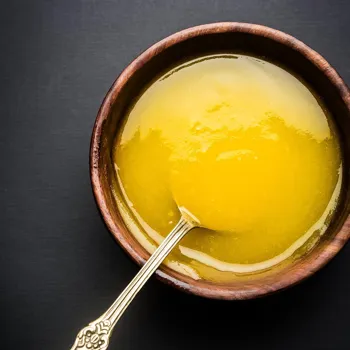
It is also believed to aid digestion by stimulating the secretion of stomach acids, which help break down food. The butyric acid in ghee is known to nourish the cells of the colon, promoting a healthy gut environment.
For those who experience bloating or digestive issues with other fats, ghee can be a gentle and soothing alternative. It helps relieve constipation.
High Smoke Point: Ideal for High-Heat Cooking
Ghee boasts a high smoke point of around 450°F (232°C), making it an excellent choice for high-heat cooking methods like frying, sautéing, and roasting.
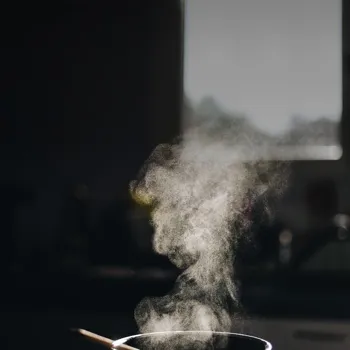
Unlike some oils that break down and release harmful free radicals at high temperatures, ghee remains stable, preserving its flavour and nutritional value. This makes it a healthier option for stir-fries, deep-frying snacks, or searing vegetables to perfection.
The high smoke point also ensures that your food cooks evenly and develops a beautiful golden-brown crust. Ghee does not burn as fast as the other oils, so food will be cooked for a longer time.
Ayurvedic Significance: A Traditional Remedy
In Ayurveda, the ancient Indian system of medicine, ghee is considered a rasayana, or rejuvenative substance. It's believed to possess nourishing and healing properties that promote overall well-being.
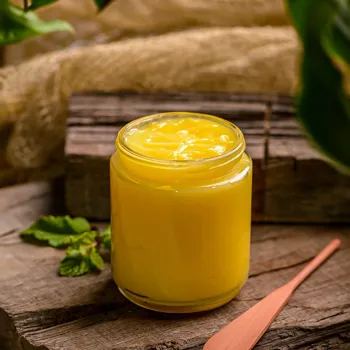
Ayurvedic practitioners often use ghee as a vehicle for delivering herbal remedies, as it helps transport the herbs deeper into the tissues. It's also used in various therapies to lubricate the joints, soothe the skin, and improve memory and cognitive function.
Whether used internally or externally, ghee plays a significant role in maintaining balance and harmony in the body, according to Ayurvedic principles. It is used in various Ayurvedic medications.
Long Shelf Life: A Pantry Staple
Ghee has a naturally long shelf life, making it a convenient and economical pantry staple. When stored properly in an airtight container at room temperature, ghee can last for several months without spoiling. This eliminates the need for refrigeration and reduces the risk of rancidity.
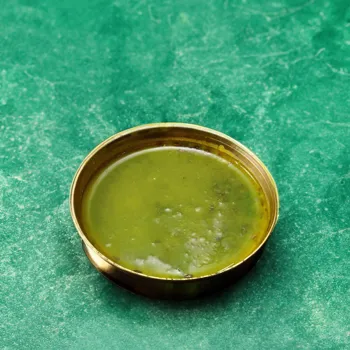
The long shelf life is attributed to the absence of water in ghee, which inhibits the growth of bacteria and mold. So, a jar of ghee in your kitchen ensures you always have a healthy and flavourful cooking option at your fingertips. Ghee does not easily spoil like butter
A Touch of Luxury: Elevating Your Cooking Experience
Beyond its practical benefits, ghee adds a touch of luxury and indulgence to your cooking experience. The rich aroma, the smooth texture, and the distinct flavour create a sensory delight that elevates your meals.
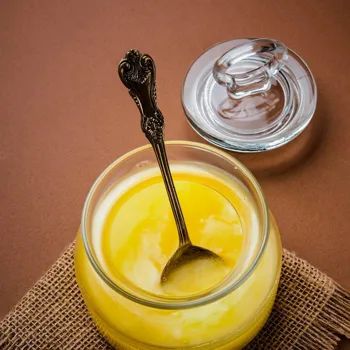
It transforms simple dishes into something special, making everyday cooking a more enjoyable and rewarding experience.
Whether you're drizzling it over freshly cooked dal, using it to roast vegetables, or adding it to baked goods, ghee brings a touch of warmth and sophistication to your culinary creations. A dash of ghee goes a long way.
Incorporating ghee into your cooking is a simple yet powerful way to embrace tradition, enhance flavour, and potentially reap health benefits. By understanding its unique properties and culinary versatility, you can unlock the magic of ghee and elevate your everyday meals to new heights.
So, open that jar of liquid gold and experience the difference it can make in your kitchen!
AI Generated Content. Glance/InMobi shall have no liability for the content